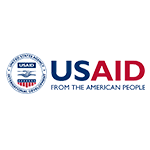Improving Provider Adherence to Malaria Case Management Guidelines in Liberia
HIGHLIGHTS
- Early diagnosis and appropriate case management for malaria are important for effective treatment, but service providers do not always follow management guidelines.
- In Liberia, we identified several reasons why service providers might not adhere to guidelines, including frequent stock-outs of medical supplies, ambiguity over how to apply protocols when faced with constraints, and skepticism about the reliability of rapid malaria tests.
- Our assessment helped to identify opportunities to adapt malaria-focused solutions developed by Breakthrough ACTION Nigeria and to recommend other design opportunities to create a more enabling environment for providers.
The Challenge
Early diagnosis and appropriate, effective case management for malaria are important to reduce morbidity and mortality. However, in Liberia, service providers do not always adhere to the national case management guidelines for malaria. Providers sometimes fail to adhere to rapid diagnostic test (RDT) procedures, treat for malaria without a positive test—or despite a negative result—or treat uncomplicated malaria cases with injectables. Occasionally, providers also give unclear instructions on the timing and duration of artemisinin-based combination therapy (ACT), a combination of drugs used to treat malaria.
Our Approach
To understand the behavioral drivers underlying providers’ adherence to the national malaria case management protocol, we conducted a qualitative investigation in 12 facilities of three districts of Montserrado County (Commonwealth, Bushrod, and Todee) Liberia. Our assessment included interviews with health providers involved with facility-based malaria case management as well as their clients, and observations of client flow and fever consultations in the health facilities.
Our assessment revealed various insights into what influences providers’ protocol adherence:
- Providers often do not have access to the commodities they need—such as RDTs, microscope commodities, and/or ACTs— to follow diagnosis and treatment guidelines, leading them to exercise their discretion and adapt their practice to limited supply.
- Providers identify as clinical experts; when there is a mismatch between their training and what is feasible in under-resourced health facilities, ambiguity in the protocol allows providers to justify using their judgment to diagnose and treat malaria.
- While providers generally abide by the protocol that all suspected cases be sent to the lab, they are skeptical of the reliability of test results when they conflict with their clinical diagnoses and may seek additional testing. They may also treat for malaria despite a negative test result to avoid the severe risks to clients of untreated malaria.
- Providers, under pressure to screen clients quickly during busy days, prioritize malaria assessment when clients bring fever complaints and may not fully consider other diagnoses.
- Providers, some relying on outdated guidance and treatment decision aids, face additional challenges in effectively treating malaria due to client medication behavior before and after attending the health facility.
Results
Through the synthesis of these insights, we identified five key recommendations for the National Malaria Control Program to support provider compliance with malaria case management protocol in Liberia:
- Improve commodity supply and transparency
- Reduce ambiguity in case management protocols
- Build confidence in the reliability of test results
- Support quality consultations and differential diagnoses, and
- Facilitate antimalarial treatment decisions and counseling.
Though we considered illustrative design directions for acting on each recommendation, we did not design or test solutions as part of this project. However, our behavioral assessment revealed areas of overlap with the behavioral barriers identified by Breakthrough ACTION Nigeria, suggesting that solutions developed here may be relevant for adaptation to the Liberian context.
Takeaway
By understanding what’s driving health provider behavior—and why providers may or may not follow the national malaria case management protocol—we can design solutions that yield more accurate treatment, support better health outcomes, and limit shortages of essential antimalarial drugs.
Interested in our work applying behavioral science to global health? Email gh@ideas42.org or reach out to us on LinkedIn to join the conversation
Partners








